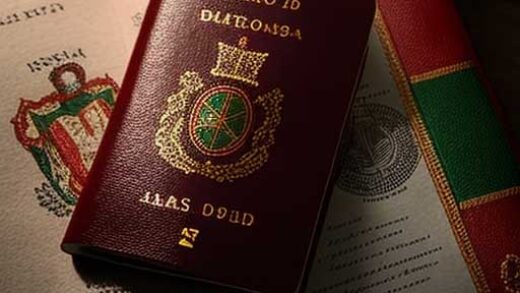The digital nomad visa enables a prolonged stay in select European countries, and the process of obtaining it is relatively simple. Strictly speaking, it is not a visa, but rather a program that grants a residence permit for a minimum of one year in these countries. Typically, the permit can be renewed after this period, or in some cases, reissued for other reasons such as employment in the country of residence. However, obtaining the visa itself, which allows entry into the country, must be done separately. In certain instances, applicants may also need to arrange housing and open a bank account prior to arrival.
These programs are most suitable for employees in the IT industry who can afford to work remotely for a good income (hence the term “digital nomads”). Many countries hope to attract highly skilled professionals in this way. However, it is not necessary to work in IT, as long as the work is related to digital technology (which can be as simple as a laptop with internet access). Typically, the primary requirement for a digital nomad visa is proof of a certain income level (regardless of the field) that is consistently received from abroad.
Let’s understand which countries provide this opportunity for IT specialists.
Article structure:
Portugal: Citizenship can be requested after five years under the program, but there’s a long wait for residence permit issuance
The issuance of residence permits in Portugal involves a lengthy waiting period, but after five years of residing under the program, citizenship can be applied for. In October 2022, the Portuguese digital nomad visa was be introduced, allowing foreign individuals to legally reside in the country while working remotely. To be eligible, applicants must demonstrate a minimum income of €3040 for each of the last three months. The visa can be issued as either a Temporary Stay Visa or a Residence Visa, with the application process taking place at the embassy or consulate of Portugal in the individual’s country of citizenship or where their residence permit is located. However, scheduling an appointment to apply can be difficult, and wait times can last up to six months in some locations. If the applicant is already legally in Portugal, they can apply directly to the Immigration and Borders Service (SEF).
The initial visa is valid for four months, during which time the individual must apply for a residence permit at SEF. If successful, the residence permit will allow the individual to remain in the country for an extended period. If planning to live in Portugal for over 183 days, income tax will need to be paid on a progressive scale of 14.5% to 48%. To be eligible for the digital nomad visa, the individual must confirm remote employment with a foreign employer and/or work for foreign clients, and obtain a document on tax residency from the country where they pay taxes.
Mexico Digital Nomad Visa: Applicants must meet income and property criteria
To be eligible for the Mexico Digital Nomad Visa, applicants from all over the world must meet certain income criteria, including a bank balance of at least $43,000 for the past year, a monthly income of $2,595 for the past six months, and the ownership of a Mexican property worth at least $346,000. There are several benefits of working as a digital nomad in Mexico, including reliable internet, a simple tax system, and accommodating visa options. Additionally, the country’s warm climate, low cost of living, friendly people, rich culture, and delicious food make it an attractive destination. Applicants must provide a valid passport, a completed visa application, a recent photo, proof of income, medical insurance, a criminal background check, proof of relationship to dependents, and proof of fee payment. The process for obtaining a Mexico Digital Nomad Visa involves scheduling an appointment at a Mexican embassy or consulate, gathering the necessary documents, completing the application, attending the appointment, traveling to Mexico, paying the fees, and registering for temporary residence at the National Migration Institute within 30 days of arrival.
Good to know: The New Era of Relocation Travel in 2023
Greece: Residency permit for two years
Digital nomads can obtain a residency permit in Greece by entering the country on a Schengen visa and applying on-site. The permit is valid for two years and can be renewed indefinitely as long as the program requirements are met. To apply, applicants must have a minimum income of €3,500 per month (or 20% higher if accompanied by a spouse and 15% higher if with a child) and provide a long-term lease agreement. The application fee is €75, and if approved, an additional state fee of €1,000 must be paid. Processing takes about a month, and applicants must provide biometrics after four weeks. Once approved, a residency permit card will be issued within two or three weeks. However, absences from Greece cannot exceed six months per year.
Croatia: Visa cannot be immediately renewed after one year under the digital nomad program
The digital nomad visa in Croatia allows individuals to obtain a one-year residence permit by applying online and confirming a monthly income of €2400 + 10% for a spouse and/or child. After approval, a type D visa must be obtained from the embassy or visa center, and entry to Croatia must be made within 30 days. Once in the country, the individual must register their place of residence with the police, submit the required documents, and wait for the residence permit to be issued. One advantage of this permit is the ability to apply online, and it allows the applicant to avoid paying for expensive state health insurance, signing a one-year lease, or paying taxes in Croatia. However, it is not possible to extend the permit without interruption, and neither the applicant nor their family members can work in Croatia. Family members can only obtain their own permit through family reunification after the main applicant.
Spain: the program offering a long-term residence permit with a 24% tax rate
Spain has recently introduced a program that offers a long-term residence permit with a 24% tax rate, which has become one of the most popular digital nomad programs this year. The application conditions are unique as applicants can apply directly from Spain after entering on a tourist visa, and the processing time is up to one month. The program allows successful applicants to live and work in Spain for up to five years, which can be extended for an additional two years if the applicant continues to meet the program’s conditions. After five years, applicants can apply for permanent residency, and after ten years, for citizenship.
To be eligible, applicants must meet certain requirements such as a monthly income of 2520 euros, a work contract allowing remote work, and no criminal record. Freelancers with clients abroad can also apply, but the clients must be companies or sole proprietors, and a contract with them must be provided. Family members can join the primary applicant, but the primary applicant’s monthly income must be higher. Additionally, Spain has set a fixed tax rate of 24% on digital nomads’ income.
Cyprus Digital Nomad Visa: No Schengen visa required for nomads to enter and stay after obtaining a residency permit
Applicants must demonstrate a monthly income of 3,500 euros +20% for a spouse and +15% for each child, proven through a work contract, GPX agreement, or documented passive income. Additionally, proof of property rental in Cyprus is required.
The Ministry of Interior in Cyprus allows for residency permit applications to be submitted locally, and applicants can enter on a national or Schengen visa. Family members can apply at the same time. The program offers a one-year residency permit with the option to extend for an additional two years. Experts report that the process takes an average of five to seven weeks.
Unlike in other countries, there is no requirement to spend a certain number of days in Cyprus to maintain residency, but nomads cannot leave the country for more than 90 consecutive days. Local employment is prohibited for nomads and their family members.
It is worth noting that the Cypriot program has a cap of 500 approved applications for digital nomads.
Hungary: Fast processing, but only for solo digital nomads
Hungary has launched the White Card program, aimed at issuing residence permits to digital nomads. This program is available to remote workers from third countries and owners of a share in foreign companies that generate profits outside Hungary. Applicants must have a minimum monthly income of 2000 euros after tax and their business or company’s activities must be related to “advanced” digital technologies.
To apply, applicants must provide an employment contract indicating their income, as well as bank statements showing the movement of money for the last six months. Information on other necessary documents and program details can be found on the website of the National Directorate-General for Aliens Policing.
The cost of applying is just over 100 euros, and Hungary considers digital nomad visa applications quickly compared to other countries, taking one and a half to two months to issue residence permits for up to two years. However, the program does not provide for family reunification, and spouses need to find their own grounds for moving to Hungary. Additionally, the residence permit may be revoked if absent from the country for more than 90 days a year.
After six months of living in Hungary, a digital nomad’s income becomes subject to a 15% tax. However, time spent living in Hungary as a “nomad” does not count towards permanent residence or citizenship.


